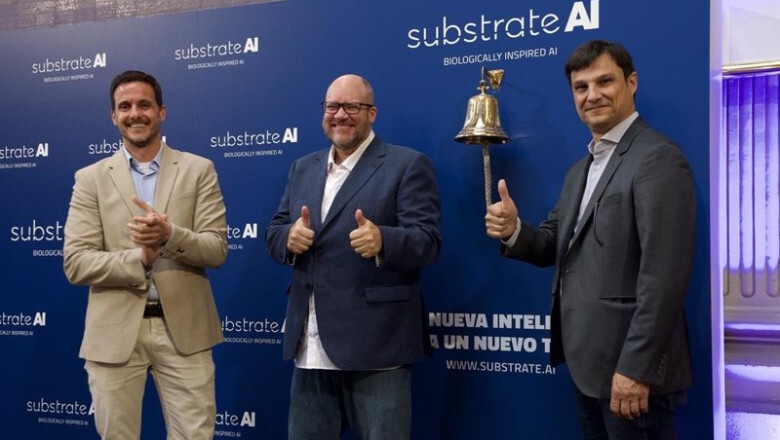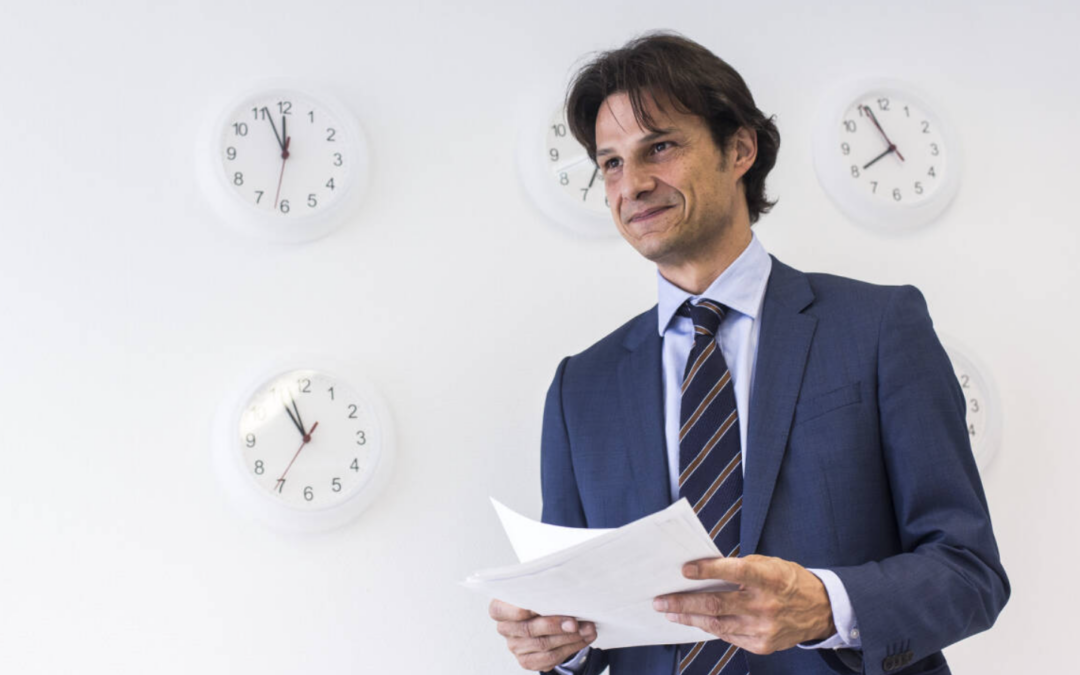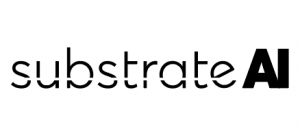Substrate AI, artificial intelligence 'made in València' that chokes the stock market (for the moment)'.. This was the headline of this newspaper on August 19 last year about the listed company managed by Lorenzo Serratosa and José Iván García. Both also founders of Kau Markets EAF duly authorized by the Comisión Nacional del Mercado de Valores (CNMV) (National Securities Market Commission)which is domiciled in the 'cap i casal'.
Neither the rising results, nor the liquidity injections, nor the inorganic growth policy are pricing the first artificial intelligence software company - with the added bonus of having tremendous growth potential - to debut in Spain on the stock exchange. It did so on May 17 in BME Growth, that is, in this specific market for growing SMEs..
In view of all this, this newspaper wanted to know firsthand the reason for the bad stock market tone, future prospects, the importance of artificial intelligence (AI) and, among other things, the impact of inflation on the Valencian listed company. And what better way to do it than with its president Lorenzo Serratosa, who once again kindly answered Valencia Plaza's call. The following is the talk we had:
To what do you attribute the poor stock market performance of Substrate AI (SAI)?
-This bearish tone is due to several factors that have converged, some of which are related to the company and others are not. On the one hand, we are related to the economic environment, given that we went public in the worst half of the year since the 1930s. This is due to the change of cycle we are in, with inflation running rampant and in the midst of a change in interest rates, which especially affects companies like ours as a high-growth technology company with certain capital needs to finance that growth. Oddly enough, we are not the only small technology company that has fallen sharply in the market this year, as many have numbers similar to ours. And it is a process that not only affects listed companies, but also others that are not listed on the stock exchange. There is the case of 'startups' where a very rapid adjustment of valuations is taking place, waiting to see what happens in the coming quarters in the economy.
What about other factors that are affecting them?
-We have those related to SAI itself. We are a very new company, in a sector such as IA that is very little known in Spain and arouses much interest, but also much suspicion. This leads us to make an extra effort to tell what we do, to explain the immense possibilities that our market has in the next 10-15 years and how we plan to take advantage of this enormous tailwind. All this requires time that, for example, a retail or consulting company does not need because everyone knows these businesses and can compare them with other similar ones.
Therefore, he is not worried, especially considering that the stock market is synonymous with the long term?
-If you put together an environment of fear and recomposition of the economy with the lack of knowledge about our sector and its possibilities, what is happening is normal. However, the most important thing is that it is not relevant. Those of us who have been investing in the market for a long time know that a year is nothing, and the performance of a company in twelve months is not at all relevant to its long-term development.
Do you regret taking the step of going public?
-Of course I have no regrets, neither I nor anyone else on the SAI team. Netflix, one of the most profitable in recent years, went public in May 2002 and was down 60% in September. Apple, the world's largest company that everyone wants to own, went public in December 1980 at a price of $22 per share. A year and a half later, in July 1982, it had lost 60% of its value....
Warren Buffett's Berkishire Hathaway comes to mind....
-And so much. The return obtained by the shareholders of Berkshire Hathaway - the most profitable listed company on the planet for its shareholders - during the first 12 years of Warren Buffett's management was -2.6%, it fell by 59% in 3 years (76-79), while its book value increased by 200%. All these examples speak of the same thing: the market is slow to recognize a job well done, because a listed company faces not only its own development but also a market in which many different interests converge. All legitimate, but not all aligned with long-term profitability.
What would you say to an investor who holds - or wants to buy - SAI shares?
-I would say that today we have all the ingredients to offer great joys in the coming years. We are an important player in a sector -artificial intelligence- that will experience enormous growth in the coming years. We have a clear and defined strategy to take advantage of this growth; we also have the necessary financing to do so, and we are growing at a good pace.
What are the figures in this regard?
For example, we closed the first half of 2022 with a revenue increase of 128%, which is in line with our business plan that says we are going to grow by 100% in 2022 and another 100% in 2023 achieving a 5-year Compound Annual Growth Rate (CARG) of 106%. Very few firms grow like this. That said, any investor who invests in a listed company such as ours must think that they are doing so with a 3-5 year horizon, and must know that they are going to experience high volatility events. Nothing new for what a stock market investment represents, which is to assume high volatility in exchange for a higher expected return.
Following Warren Buffett's example...
-Buffett has a couple of sentences that fit perfectly here. He says that with little money he is able to get 50% returns in the stock market. Why? Because he's able to spot value and take risks where others don't. He also recommends that if you are not able to take 50% dips in your stocks you better not invest. No one should invest in Substrate AI or any other company if they don't know what they are doing, if they haven't done their analysis, believe in what we are doing and know what it means to invest in the stock market. That said, we are obviously delighted to welcome as shareholders all those investors who - having done their analysis - trust in what we are building.

What can you tell us about the new roadmap with the new projections for the 2022-2023 period?
-The projections published for 2022 and 2023 imply closing the 2019-2022 period with a CARG growth of 106%, completing five years in which the company will have doubled its turnover each year to around 9 million euros and will have positioned itself as a relevant player in the sectors that are key for us -energy, human resources, agritech, health and fintech); as well as a provider of plug and play SaaS solutions for large firms. Fulfilling this plan is what really concerns us every day, as it is the basis for us to be able to push ourselves towards new challenges in the coming years.
For those who still do not know SAI works in the SaaS -software as a service- sector, which is growing a lot...
-We work on providing SaaS solutions for the enterprise (B2B AI Saas) which has grown by 500% in the last 7 years according to Gartner, and will grow to multiples of over 30% in the next 5 years, despite all the economic problems. Companies know that the adoption of AI generates high returns wherever it is applied, be it marketing, compliance or operations; while its adoption will become more and more massive, just as it happened with the use of the computer in the office in the 1980s or, related to that, the use of software.
Is the application of artificial intelligence profitable?
-Accenture has just published a report stating that only 12% of large companies today make profitable use of AI, increasing their revenues by up to 50 % more than other organizations, with better results in customer experience and sustainability. According to the consultancy, that 12% will double to 24% by 2024, which is a huge growth market. This is the challenge for Substrate AI in the coming years: to position itself as an important player in the transformation of the economy that AI is bringing about and that will be related to the path towards a more sustainable economy. This is what we are working for every day.
What is currently 'cooking' in SAI's oven?
-On the one hand, we are commercializing the solutions already developed in the areas of fintech, energy or agritech, such as our dairy farm management system; our energy saving system for buildings, anomaly detection for solar plants or those that we are distributing through Microsoft Azure. On the other hand, we are working to complete the products and solutions that we had planned in our business plan. In this sense, our biggest bets are in the human resources and health sector.
How is Cuarta Dimensión Medica, a firm acquired six months ago, doing?
It already has a well-established business in diagnostic imaging hardware, with customers in the veterinary sector throughout Spain. Precisely because of this, because of its knowledge of the environment and its commercial capacity, it is the perfect platform for the launch of our diagnostic imaging solution, which we are currently developing.
What about SAI's Fleebe solution for human resources?
-The same is true in the human resources sector, where we are already present with our Fleebe solution, and where we are completing our AI platform for talent detection and retention in large organizations. As everyone knows, the human resources sector is one of the fastest growing in the use of new software solutions for better employee management. And, ultimately, to better match the needs of organizations with those of workers. At this point, AI is going to be key to increasing people's satisfaction levels in the jobs they perform.
Will they continue to grow inorganically?
-No doubt about it, but also organically. In 2021 we made three acquisitions and in 2022 another one. Our rhythm does not stop and we expect to continue like this in the coming years. When the opportunities we are waiting for present themselves and when the time is right. Today there are many uncertainties in the economy and these invite reflection: where will the rise in interest rates end, how will it affect company valuations, how will access to financing be in the coming quarters, how deep will the feared recession be and how will it affect business? All these questions are uncertainties that affect buyouts in our case as well as in the case of venture capital or private equity funds, which have gone into 'wait and see' mode. I think this is the right strategy in this environment.
What role is artificial intelligence playing - and will play - in the so-called 'new economy'?
-Without a doubt, AI is going to be one of the building blocks of the 'new economy' because it is a technology that helps create new efficiencies where they don't exist. That is precisely what we need to generate economic growth with the same carbon footprint, or reduce the carbon footprint for a given GDP. Saving energy in buildings, managing animal farms to reduce drug intake and improve animal welfare, scheduling logistics routes to save on fuel or new forms of medical diagnosis that save time and visits to patients are some examples of how AI is going to help us move towards a zero-emission economy. But there are many more examples and the use cases are increasing every day. We really don't yet know the full potential of this technology and how we will be using it in 10 years' time. We are sure to be surprised.
How is the escalation of inflation impacting SAI?
-The good thing about businesses like ours is that they are not impacted by inflation: in fact, we may very well benefit from it. There are two sides to this problem: on the cost side, as a knowledge-based service company, the rise in raw materials does not affect us since our raw material is gray matter, which is now as scarce and expensive as it was a year ago. On the other hand, we must understand that AI systems are above all about cost savings, they affect the rationalization of operations and therefore cost savings.
Give us an example...
-One example is our dairy farm manager that increases farm profitability by up to 30%. How? Through rationalization of feed management leading to better animal health, lower drug intake and thus higher food quality and more profitable farms, but also more sustainable and environmentally beneficial. This is the power of AI when applied, for example, to energy saving in buildings, to detecting problems in the management of solar plants or to marketing in large organizations, always achieving cost savings.
Finally, are central bank rate hikes the solution to curb inflationary pressures?
-They are a weapon, without a doubt, although I believe that in this inflationary crisis they have little to do with inflation. The current inflation has to do with supply bottlenecks and not with excess demand on the part of consumers, which is not fixed by raising interest rates but by normalizing supply chains. Central banks also know this and know that they can do little against this problem which is affected by covid-postcovid, but also by the geopolitical problems that are changing the way we trade globally. Just as the whole process of globalization was deflationary and gave us years of low inflation, the process of border closure and renationalization that we are going through is an inflationary process that remains to be seen where it will take us. I am not a specialist in these matters, but I think that central banks should do what they do, although I doubt that this will lead to an effective control of inflation. Rather, I think we will have to get used to living with it for a long time.
Interview made by the publication VALENCIA PLAZA to Lorenzo Serratosa, President of Substrate AI.

